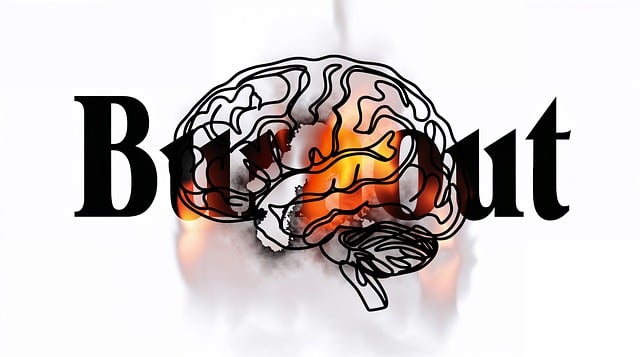Boulder Hebrew Speaking Therapy prioritizes risk assessment and harm minimization strategies for client safety and well-being. Through comprehensive evaluations, therapists develop personalized interventions addressing individual vulnerabilities. Proactive measures include self-care practices, emotional intelligence training, supervision, and evidence-based techniques tailored to diverse needs. Cultural considerations are integral, involving community leaders to ensure effective, ethical therapy aligned with Hebrew-speaking values and traditions, ultimately enhancing client outcomes.
In today’s diverse therapeutic landscape, effective risk assessment and harm minimization planning are paramount. This comprehensive guide explores critical aspects of ensuring safe and ethical practices within Boulder Hebrew-speaking therapy sessions. We delve into understanding complex risks, implementing practical harm reduction strategies, and addressing cultural nuances specific to the Hebrew-speaking community. By following structured steps, therapists can develop robust risk management plans tailored to their clients’ unique needs.
- Understanding Risk Assessment: Defining Potential Threats and Vulnerabilities in Therapy
- Harm Minimization Strategies: Practical Approaches for Safe and Effective Practice
- Cultural Considerations: Navigating Ethical Challenges within the Hebrew-Speaking Community
- Developing a Comprehensive Plan: Steps to Implement Risk Management in Hebrew Speaking Therapy Sessions
Understanding Risk Assessment: Defining Potential Threats and Vulnerabilities in Therapy

Risk assessment is a cornerstone of effective therapy practices, especially within the context of Boulder Hebrew Speaking Therapy. It involves identifying and analyzing potential threats to client safety while also recognizing vulnerabilities that may be exploited during the therapeutic journey. This process goes beyond merely anticipating negative outcomes; it encompasses the proactive development of strategies to minimize harm and foster positive growth.
By understanding the unique challenges and risks each client brings, therapists can tailor interventions to support their inner strength development and promote healthy self-care practices. This nuanced approach not only ensures client safety but also empowers individuals to navigate life’s complexities with enhanced resilience, especially through public awareness campaigns development that highlight the importance of mental well-being.
Harm Minimization Strategies: Practical Approaches for Safe and Effective Practice

Harm Minimization Strategies play a pivotal role in creating safe and supportive environments, particularly within the context of Boulder Hebrew Speaking Therapy. These approaches are designed to proactively identify potential risks and implement effective interventions to mitigate harm. By adopting practical strategies, therapists can foster resilient individuals while minimizing emotional distress. One key strategy involves Burnout Prevention, focusing on self-care practices and work-life balance for healthcare providers. This includes setting clear boundaries, prioritizing rest and relaxation, and cultivating emotional intelligence—a vital tool for managing stress and connecting with clients.
Additionally, incorporating Burnout Prevention Strategies for Healthcare Providers ensures therapists maintain optimal mental health and well-being. This can be achieved through regular supervision, peer support networks, and evidence-based interventions tailored to individual needs. These proactive measures not only benefit the therapist but also enhance their ability to provide effective treatment, ultimately contributing to positive client outcomes in Boulder Hebrew Speaking Therapy settings.
Cultural Considerations: Navigating Ethical Challenges within the Hebrew-Speaking Community

In the context of risk assessment and harm minimization planning, especially within the Boulder Hebrew-speaking community, cultural considerations play a pivotal role in navigating ethical challenges. The unique values, beliefs, and traditions inherent to this community must be understood and respected when developing therapeutic interventions or strategies aimed at promoting emotional well-being and coping skills development. Therapists working with this demographic should be attuned to the nuances of Hebrew-speaking culture, ensuring that any harm minimization plans are culturally sensitive and inclusive.
This sensitivity involves recognizing and addressing specific community concerns, such as the importance of family dynamics and collective support systems in fostering inner strength development. It requires a nuanced approach that avoids imposing external, potentially Western-centric, coping skills development techniques. Instead, therapists should collaborate with community leaders and elders to identify culturally appropriate practices that enhance emotional well-being while respecting traditional values. Such an approach not only ensures ethical practice but also fosters trust and engagement within the Boulder Hebrew-speaking community.
Developing a Comprehensive Plan: Steps to Implement Risk Management in Hebrew Speaking Therapy Sessions

בפיתוח תוכנית מקיפה לניהול סיכונים והקטנת נזקים בסשנים של תרפיה בדיבור בעברית, יש לנקוט במספר צעדים חיוניים. ראשית, זיהוי ומחקר של סיכונים פוטנציאליים הם שלב קריטי. ב-Boulder Hebrew Speaking Therapy, אנו מעודדים את המטפלים לחקור ולהבין את האתגרים הייחודיים שהם עלולים לפגוש בסביבה הרב-תרבותית שלנו. זה כולל שיקולים הקשורים להבדלי תרבות, שפה, ורקעים אישיים של המטופלים.
שנית, יצירת אסטרטגיות תקשורת יעילות היא לב ליבו של ניהול הסיכונים. על המטפלים להשתמש בתקשורת אסטרטגיות כדי ליצור סביבה בטוחה ומכבדת. בנוסף, שילוב אסטרטגיות למניעת שחיקה בקרב אנשי מקצוע בתחום הבריאות יכול לסייע בשמירה על בריאותם הנפשית של המטפלים. לבסוף, תכנון מראש והתאמת הטכניקות והשיטות לכל מטופל באופן אישי, יסייעו בהבטחת תוצאות חיוביות ויעילות בסשנים של תרפיה בדיבור בעברית.
Boulder Hebrew Speaking Therapy emphasizes the importance of risk assessment and harm minimization planning for safe and ethical practice. By understanding potential threats and vulnerabilities, therapists can implement practical strategies tailored to Hebrew-speaking communities’ unique cultural considerations. Following a structured approach, as outlined in this article, allows therapists to develop comprehensive plans that enhance risk management, ensuring effective and culturally sensitive therapy sessions.













